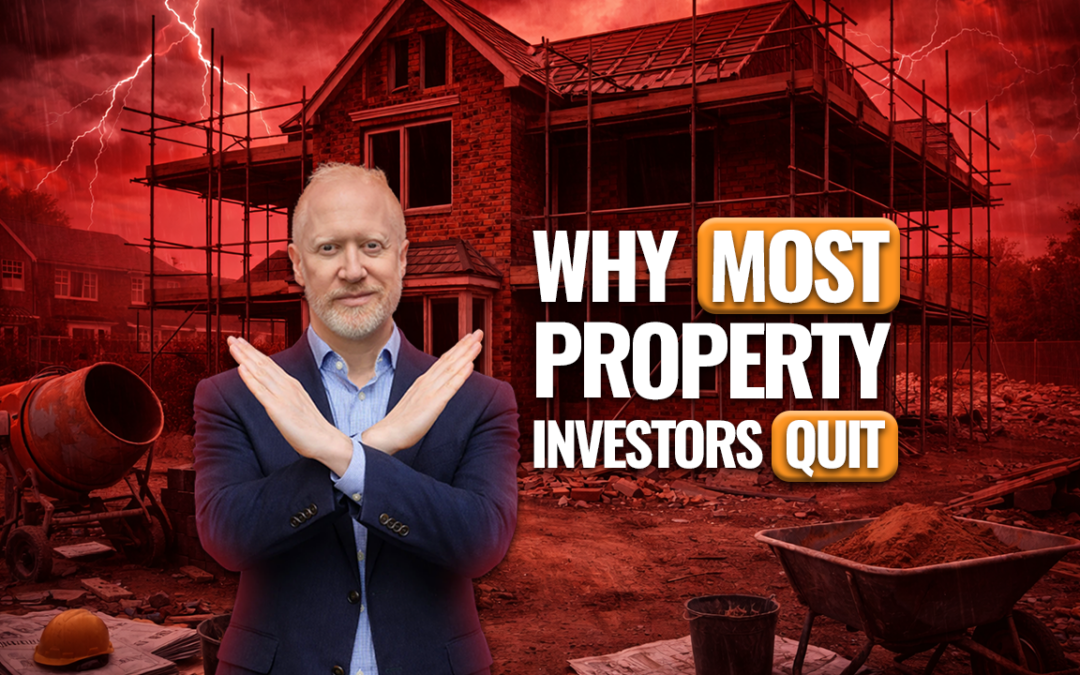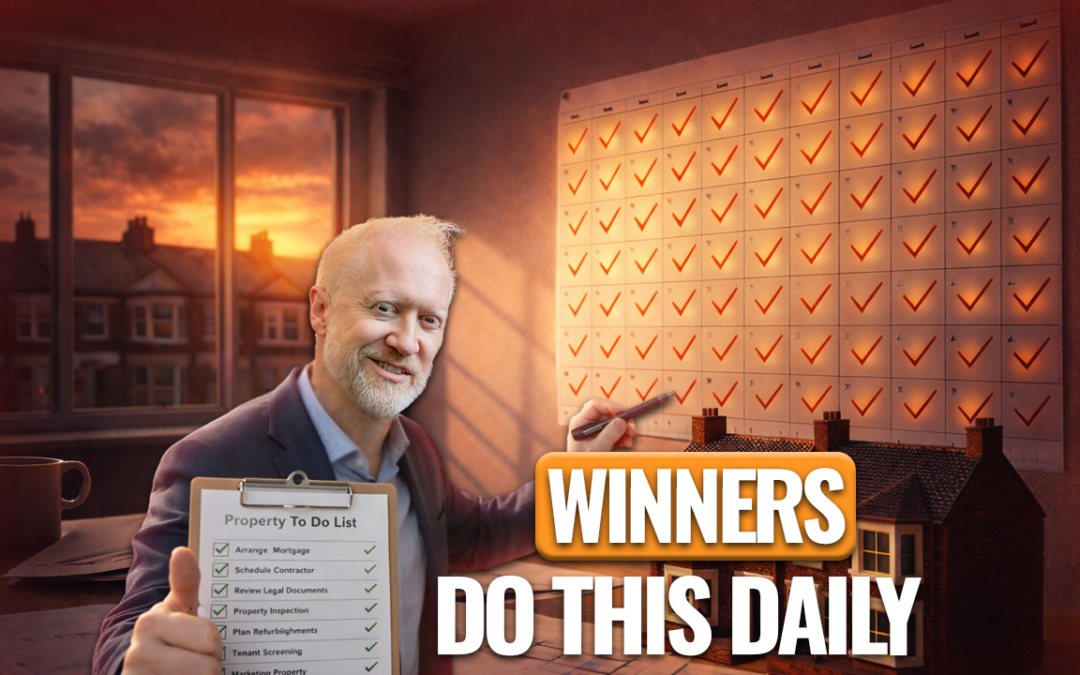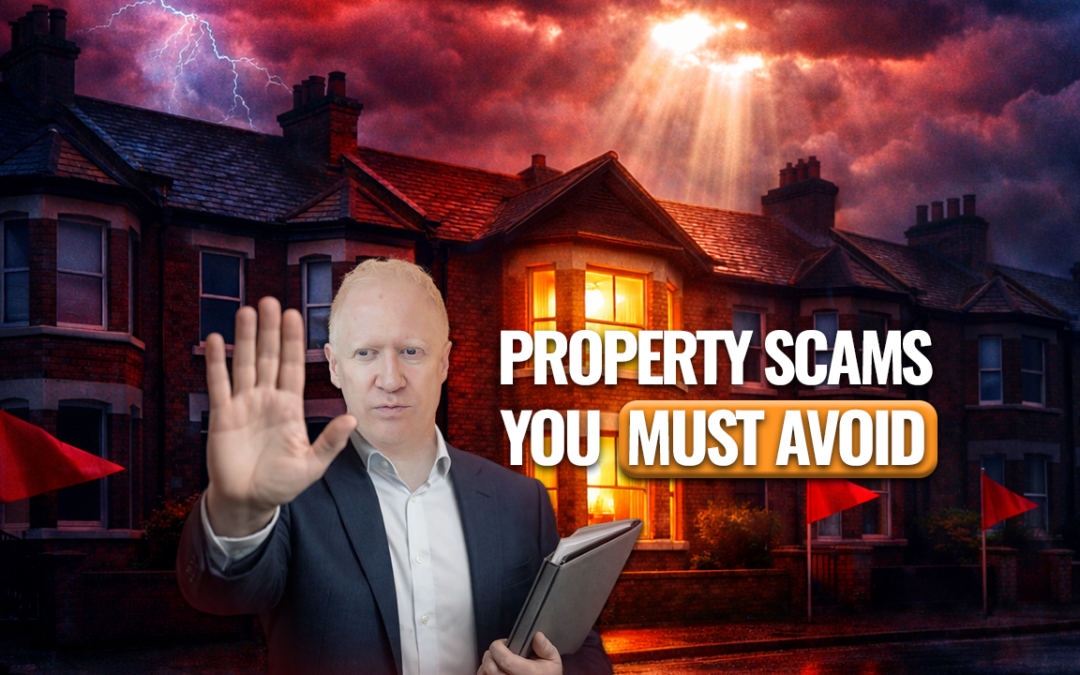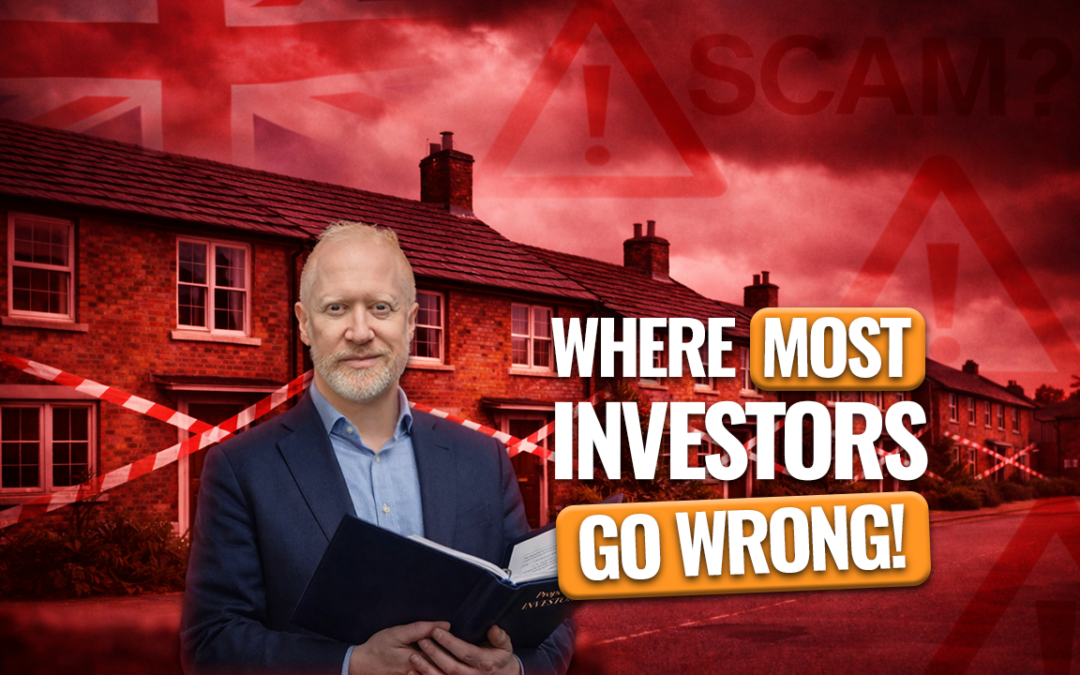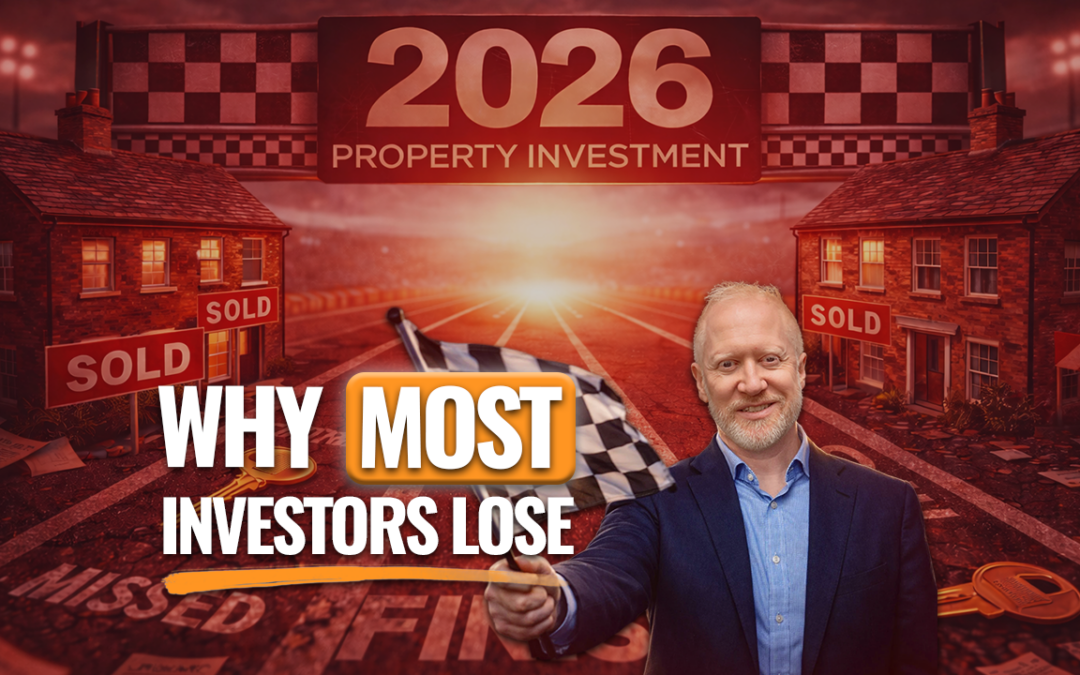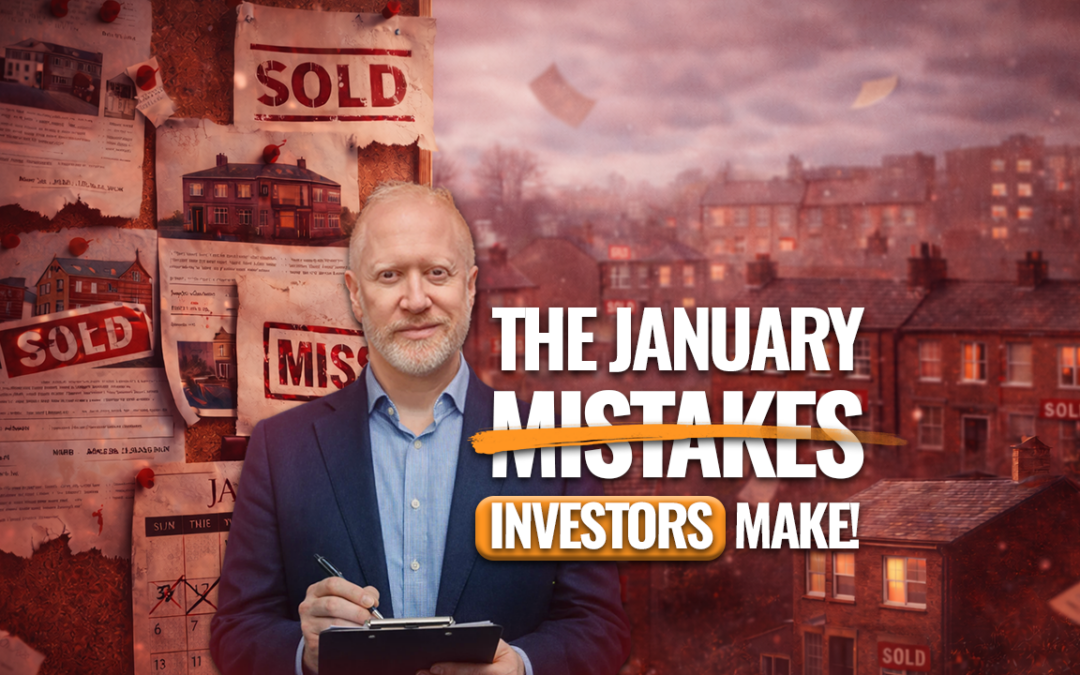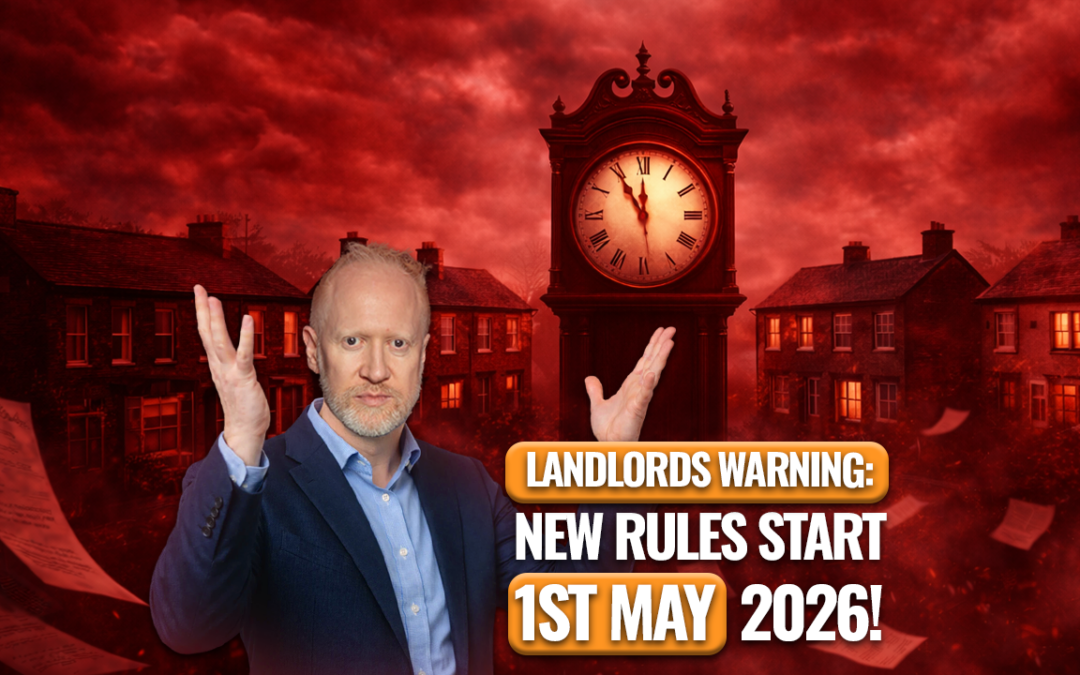In this blog, I’d like to talk to you about minimising your risk of investing through diversification. We all know diversification is a good idea, but do you actually do it in practise? There are three main asset classes which you can invest in. Obviously, there’s property, there’s business, and there’s also the stock market.
No Shiny Pennies
Now, I’ve done all three, I’ve made money in all three, I’ve lost money in all three. I personally favour property for various reasons, however, a while ago, my financial adviser said, “Simon, you’ve got too much property, “you should diversify into other asset classes.” Now, this is very important, but sometimes when people think about diversification, they flit around from shiny penny to shiny penny and never actually master anything. So it’s really important to find whatever wealth creation channel resonates best with you and do that first. And once you’ve mastered that, then move on to other channels.
My Property Strategy Diversification
In property, a great way to diversify, in HMOs for example, rather than having them all in one area for one type of tenant, you could, get one next to a university for students, you could get one in a different part of the city, or a different city completely for young professionals to spread your risk.
I get concerned when I see people who have their entire portfolio in Serviced Accommodation. While I think Serviced Accommodation can be a fantastic strategy, it’s very unregulated, unlike HMOs which are highly regulated. The risk is at some point some regulation is going to come in for Serviced Accommodation, and I worry that some people’s businesses might be wiped out overnight, so it’s really important for you to diversify within your property investing.
“So it’s really important to find whatever wealth creation channel resonates best with you and do that first.”
Investing in Stocks
When I first started investing in property, in 1995, I really didn’t know what I was doing. I made lots of mistakes, and by 2001 I was able to leave my full-time job. Around that time, I got interested in other wealth creation strategies. I started to invest in the stock market, went on a number of training courses and I started to get quite good. I made some money, I lost some money, but overall I was up on my stock market investing.
The only problem was, I realised that, actually, I was taking a long time, sitting in front of a computer to find the right shares and then investing and then working out the best time to sell them. Comparing that to the time I put into my property, which was time upfront, and then I give it to someone else to manage, property was relatively passive. So I realised that, actually, I didn’t really want to spend all that time in front of a computer, it wasn’t giving me the freedom I wanted, and so I switched just to investing in property. I’ve done very well from property, but as my Financial Adviser said, I’m a bit too heavily exposed in property.
Investing in Businesses
Another wealth creation asset is businesses. When I started my property education business, I didn’t really need to make any money from it because I had enough income from my property, to support me. But as my business has grown, it now makes a really good income because we get great results for our students. The only problem with my training business is I’m very heavily involved in it, but that’s okay because I love to do it, it’s my passion.
However, the next business I set up was CrowdProperty, the whole idea was to grow a great business that wasn’t reliant upon me. If you want to start businesses, a lot of people try and do it on a shoestring. There’s a great incentive from the U.K. government called Enterprise Investment Scheme (EIS) and Seed Enterprise Investment Scheme (SEIS), where you can raise money, by selling shares in your business to bring some money in to help you quickly grow your business. That’s exactly what we did with CrowdProperty. I started the business because I realised that there are developers who need money for their developments and are struggling to get money from banks who don’t really understand property.
There are also people who’ve got money in the bank, not achieving much return. So I thought, why not put the two together and come up with a platform that creates a solution that’s fully FCA regulated, takes care of all the paperwork and admin and makes it very easy for both parties. So we did that.
We valued the business at a million pounds, just on an idea, and we raised £150,000 through a SEIS investment. The reason people invested was they thought it was a good idea, but also it’s a very tax-efficient way for people to invest. Particularly, as a property investor. If you have any capital gains from selling property and you’re paying income tax on your rental income, you can get some generous tax rebates when investing in companies with EIS and SEIS investments.
Invest in Other People
You should really think about this if you are paying lots of tax. We have since raised funds two more times using EIS to help quickly grow the business. The latest raise in March 2019 valued the business at £15.7m, with a share price of £13.90 per share. The original investors who purchased CrowdProperty Shares at £1 each have done very well on paper.
When you want to create other income streams, you don’t necessarily have to set up your own business, you could actually invest in other people’s. And, finally, I’ve done this in another business. One of my students, Jeremy Downing, is a real expert in the stock market investing and he’s been doing it for over a decade. Jeremy has a strategy he teaches, where, basically, you can invest in the stock market in just five minutes a day, so you don’t have to sit in front of a computer. And yet you can earn between 12% and 18% return per annum. There’s always risk with any investment you make, but it’s pretty low risk.
This means you don’t have to spend a huge amount of time doing it. So it complements property investing very well. When I first heard this, I was a bit sceptical, I must admit, but I checked it out, I’ve had the training from Jeremy, and some of my students have also been trained by him, and it absolutely works. And I liked it so much, as Victor Kiam, said about Remington shavers, “I liked it so much, I bought the business”. We have now incorporated that training business into my training business. I don’t want to train stock market because that’s not my speciality, but Jeremy is the expert, and he’s now training our students.
If you’d like to learn a little bit about this strategy, how you can invest in the stock market in just five minutes a day, or less follow the link below.
I hope this blog has been useful. It’s very important to make sure you diversify your investments. Make sure you focus on one at a time, master it and get that to make you money before you go onto something else to avoid the shiny penny syndrome.

